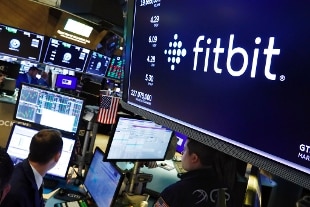- Google acquires Fitbit, the fitness bracelet
- Google take it all, from health to finance
- Phase 2: Just 10% for contact tracing apps, Google's word
- Google invests 900 million in Italy in 5 years for digital
Share
04 August 2020 The EU commission has announced that it has opened "a thorough investigation" to evaluate the acquisition of Fitbit by Google, announced last November and to be completed by 2020.The EU antitrust authority "is concerned that the transaction will strengthen further Google's position in the online advertising market, increasing the already vast amount of data that Google can use for the personalization of the ads it shows ".
For the commissioner of competition Margrethe Vestager, in the next few years the market for wearable devices, such as Fitbit, is expected to grow and therefore the EU survey will ensure that the control of the data collected through these devices is not detrimental to competitiveness.
Millions of Big Data
But beyond the competition, there is also the question - not apparently raised by the Commission - of Big Data. Google, via Fitbit, lands in the world of smartwatches and wearable fitness devices from the main door. Fitbit is in fact a world leader in the sector, which means for Mountain View to annex a very rich wealth of personal data derived from the tracking of millions of sportsmen in the world.
Founded in 2007 in San Francisco, Fitbit has experienced rapid growth: in five years - from 2010 to 2015 - revenue has increased from just over $ 5 million to over $ 1.8 billion. Sales of Fitbit devices, in 2019, are estimated to have reached 223 million pieces, of which 92 million smartwatches and 54 million fitness bracelets, wearable devices that measure and record data such as the number of steps, the quality of the sleep, the steps and gradients made by the user and other personal metrics.

